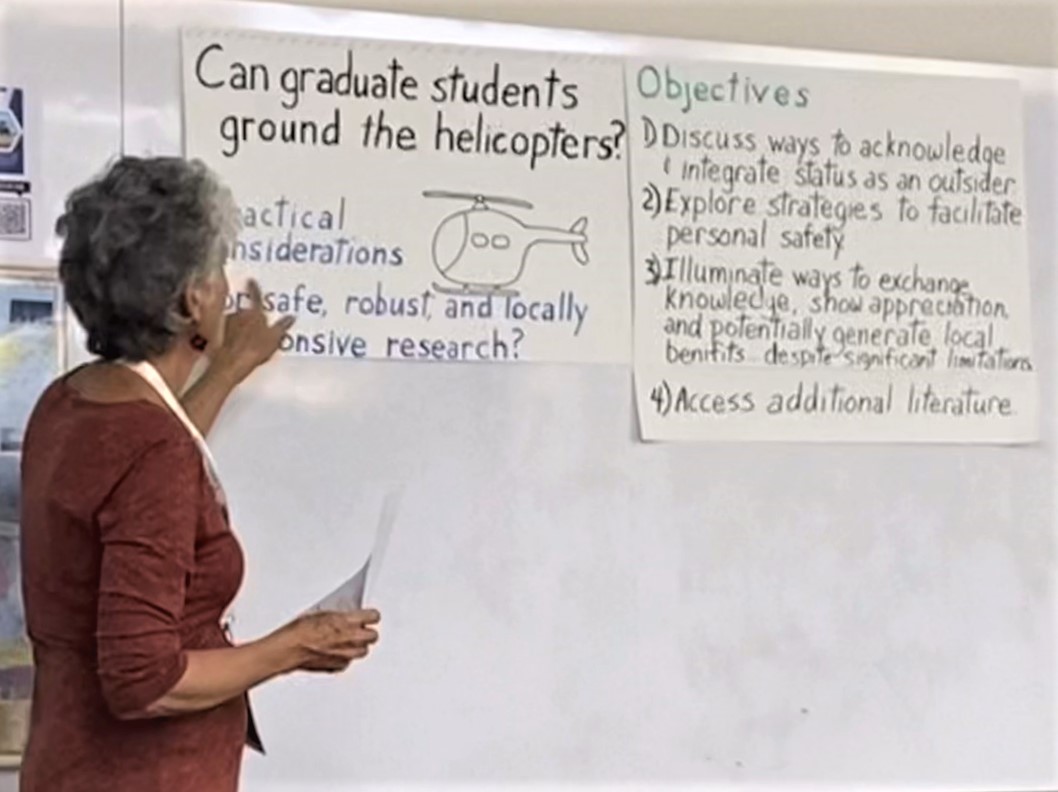As part of UFIC’s initiative to get beyond “Helicopter” approaches in research collaborations, Claudia Garnica (Biology and TCD) and Karen Kainer (SFFGS, LAS, and TCD) facilitated a workshop at the 59th Annual Meeting of the Association of Tropical Biology and Conservation (ATBC) in Coimbatore, India.
Increasingly, tropical biologists and other scientists are called upon to address the inequities of “Helicopter Science” - when researchers from higher income or more privileged settings drop into resource-poor settings to gather data with limited to no involvement or acknowledgment of contributions by local partners and/or communities.

|
|
The 2.5-hour workshop brought together 16 participants from six countries, including veteran scientists and less experienced students. to share practical considerations and strategies for field research that is safe, robust, and more responsive to local realities – antidotes to Helicopter Science.
Research conducted by graduate students generates a considerable portion of new knowledge that fuels tropical biology and conservation. These key early-career actors are well-positioned to pave new ways to conduct science that balances the needs of rigorous data collection with the wishes and (sometimes) demands of local partners. They also are keenly interested in doing science that is equitable and fair, yet also are very concerned with generating solid research that advances their career goals.
Building on a previous graduate student-led workshop, that had support from UFIC’s Challenging Helicopter Science group, TCD, and Jon Dain, we sought to create a space where these dual challenges of rigorous science and local relevance and benefits could be openly discussed. We uncovered lessons learned, discussed practical alternative approaches to Helicopter Science, and generated a sense of common purpose with possible paths forward.

*TCD = UF’s Tropical Conservation and Development Program
SFFGS = School of Forest, Fisheries, and Geomatics Sciences
LAS = Center for Latin American Studies

